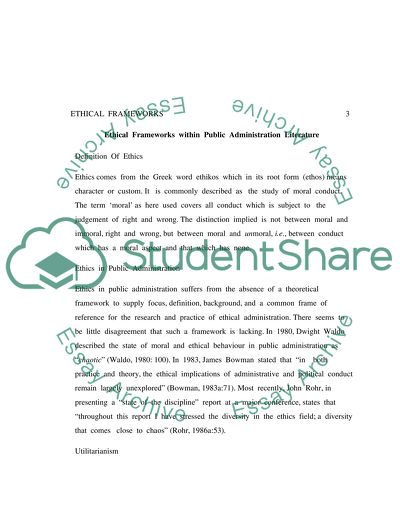Cite this document
(“Ethics in Public Administration Essay Example | Topics and Well Written Essays - 2250 words”, n.d.)
Retrieved from https://studentshare.org/miscellaneous/1513572-ethics-in-public-administration
Retrieved from https://studentshare.org/miscellaneous/1513572-ethics-in-public-administration
(Ethics in Public Administration Essay Example | Topics and Well Written Essays - 2250 Words)
https://studentshare.org/miscellaneous/1513572-ethics-in-public-administration.
https://studentshare.org/miscellaneous/1513572-ethics-in-public-administration.
“Ethics in Public Administration Essay Example | Topics and Well Written Essays - 2250 Words”, n.d. https://studentshare.org/miscellaneous/1513572-ethics-in-public-administration.


